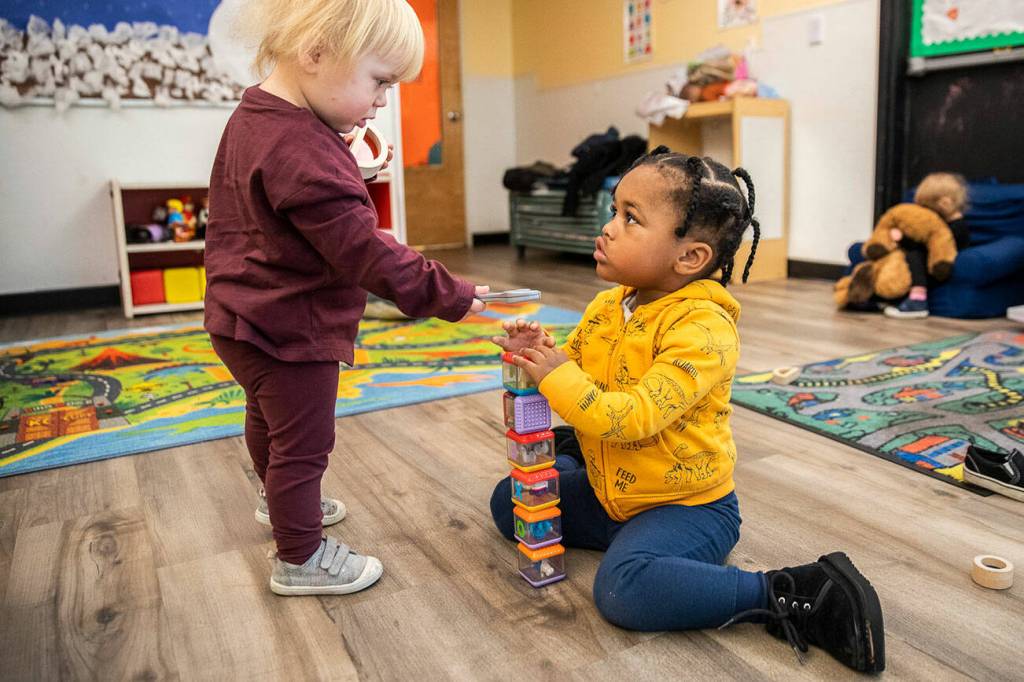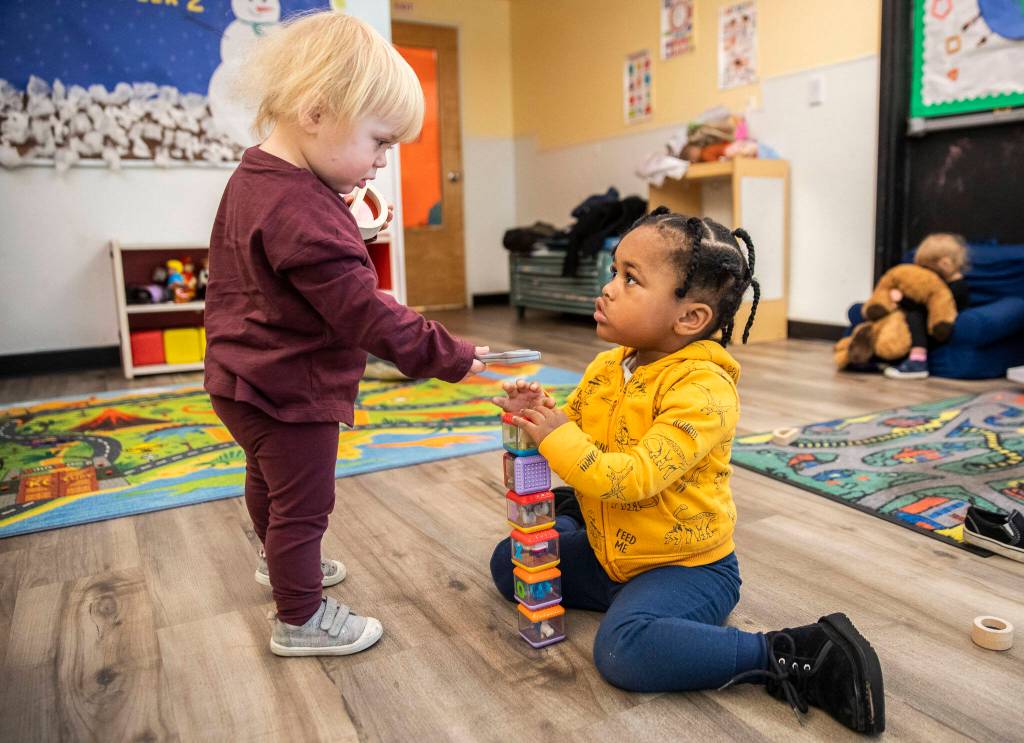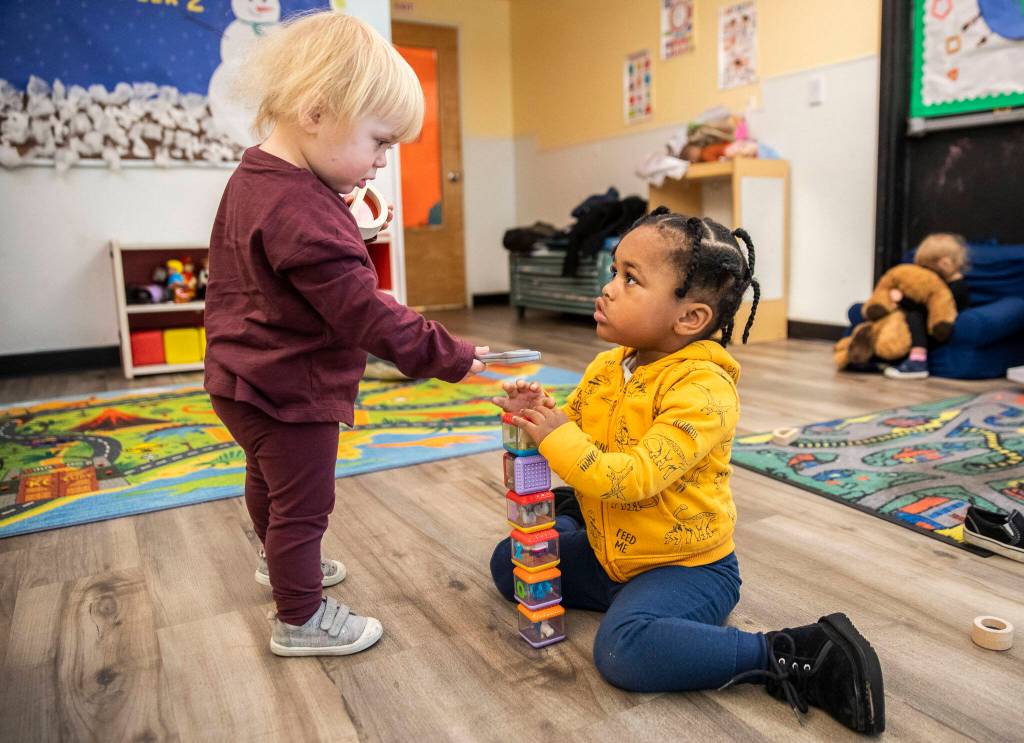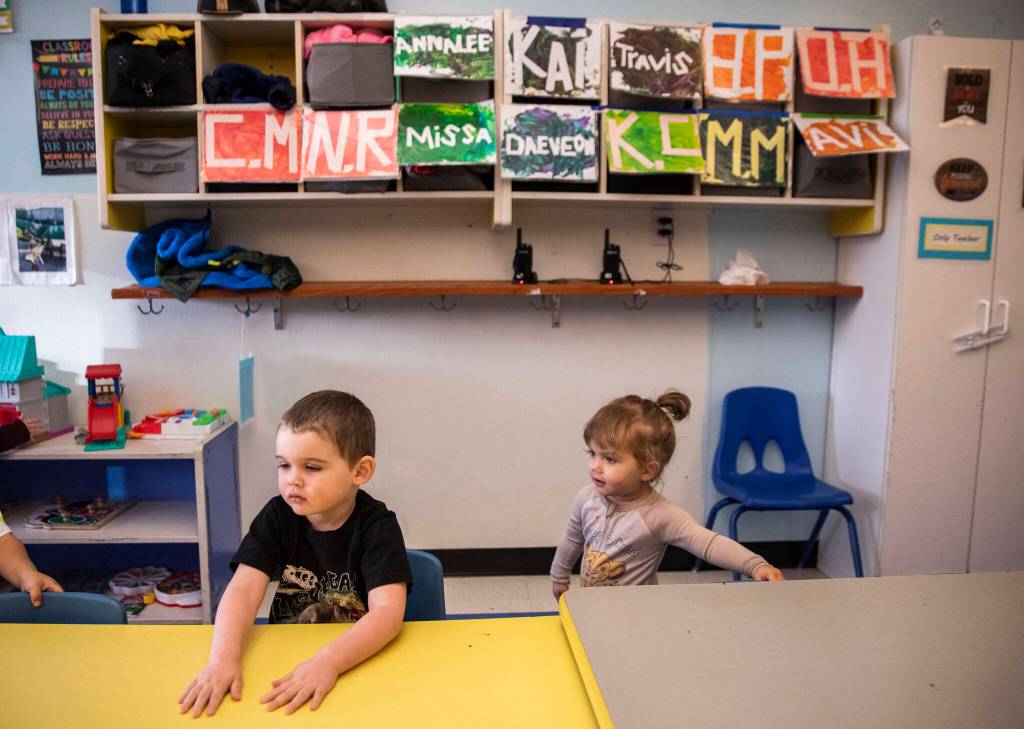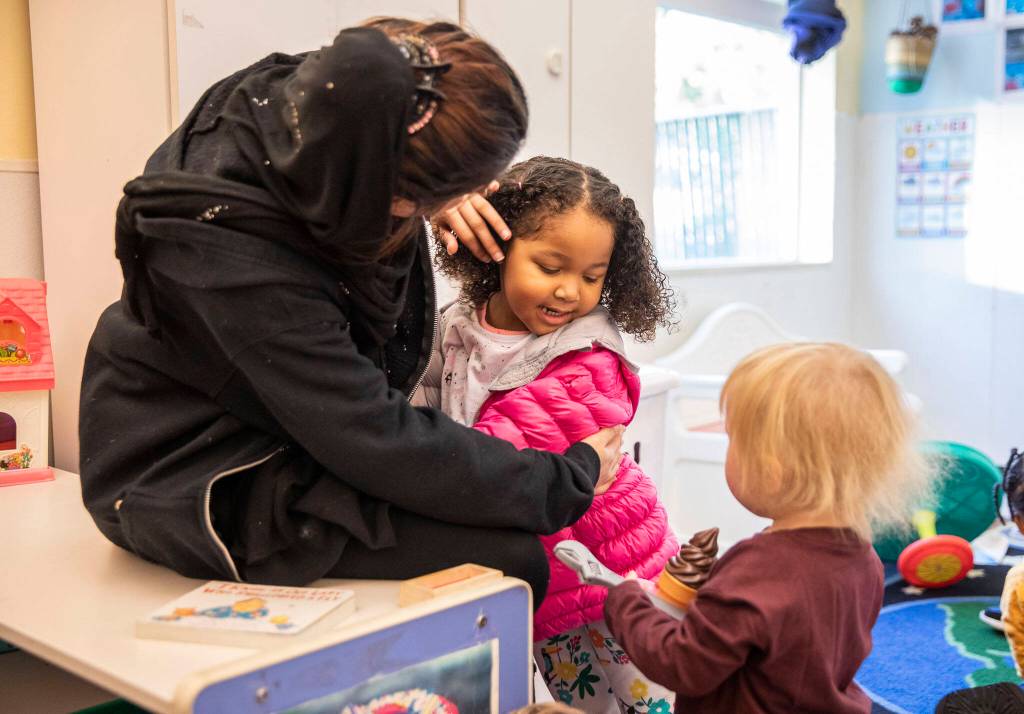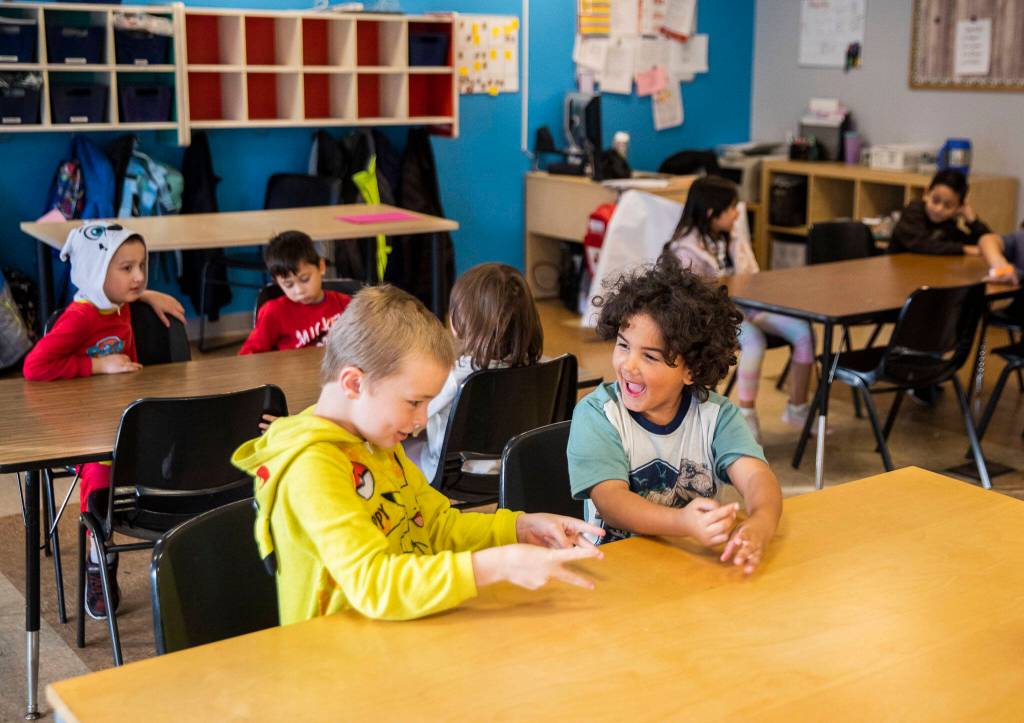ChildHope programs build skills for homeless families
Published 1:30 am Saturday, December 10, 2022






EVERETT — Bundled in winter jackets, a dozen preschool-age children look like puffy gnomes romping around the outdoor playground behind Tomorrow’s Hope Child Development Center off Evergreen Way on a late November morning.
Meanwhile, inside the early childhood care and education center, children from infancy to preschool are learning the alphabet and colors, napping and playing.
Their guardians and parents — some recently homeless — are in school themselves, or training or working.
Child care and early education is just one branch of the tree Housing Hope has to help families out of homelessness and into self sufficiency.
“It’s an amazing program,” Tomorrow’s Hope director Mandy Cheever said. “We’re working to end generational poverty.”
The Everett-based nonprofit has long since expanded from its roots as a housing provider for homeless people. Now, along with the affordable housing development and the HopeWorks worker training units, the nonprofit has a four-program division called ChildHope that centers on children and family well-being for its residents and clients.
Those programs provide a specialist to advocate for children and their guardians, “family life” education for parents, and the child development center.
Homeless families experience trauma, according to the U.S. Substance Abuse and Mental Health Administration. Often it displays as behavioral and mental health issues.
In children trauma can look like high anxiety and low confidence. Examples include disruptive behavior in class, inability to concentrate, and students avoiding schoolwork out of fear of being wrong or not knowing how to do something, director of therapeutic behavioral health Akila Osakwe said.
“This Housing Hope population just needs wraparound support,” Osakwe said. “Behavioral health is a critical piece.”
Her unit has two other employees and a goal to add another next year. They were working with 10 families in late November and planning to bring in more with the additional staff member.
The broader goal is to offer behavioral health therapy to all of the Housing Hope residents and at its child development facilities, with others planned for Marysville and Monroe.
They primarily work with Tomorrow’s Hope children and will do play therapy, a method of letting kids who may not have the means to explain what they’re feeling and why.
“The point is getting them to work it out and if they want to say something about it, then they can,” Osakwe said.
Recently Tomorrow’s Hope added a second classroom for children up to 13 years old at the Evergreen Way facility. It provides child care before and after school, as well as on days when school is out but work isn’t, like the day before Thanksgiving, for 45 kids.
The child development center has 30 faculty and staff to tend to 113 children enrolled in November. Another 21 spots were available, and families don’t have to be Housing Hope residents to qualify.
Full-time monthly rates range from $1,114 for school-age children to $1,949 for infants. There also are daily and half-time rates.
Tomorrow’s Hope has outgrown its building which used to be a restaurant decades ago. Eventually, a new space will be needed.
The child and family specialist program works with children through 21 years old and parents. They help find services for potential learning disability assessments and evaluations, connecting and understanding individual education plans and supporting parents hone their child-rearing skills.
Specialists can observe a child having behavioral issues to help the parent figure out what might be happening and how to get the potential cause evaluated. That includes for diagnoses such as attention deficit hyperactivity disorder and autism, said ChildHope child and family specialist supervisor Maribeth Darst-Curran.
“Some of these families are breaking cycles of poverty, domestic violence, substance abuse” and might not know how to navigate support systems, Darst-Curran said.
The unit has four specialists who each work with 12 to 15 families at a time. Some of those client relationships can last just three visits or be off-and-on over years, Darst-Curran said.
Supporting families leaving homelessness takes time and money, Osakwe said.
“If they don’t get the help they need, here we go with the same cycle,” Osakwe said.
Ben Watanabe: 425-339-3037; bwatanabe@heraldnet.com; Twitter: @benwatanabe.
How to give
People wanting to donate items to the child development center can call Mandy Cheever at 425-212-3255 and THkids@hopewrks.org. Financial donations can be made online at tomorrowshopechildcare.com/donate/.
Donations can be marked specifically for ChildHope programs at www.housinghope.org/donate.

